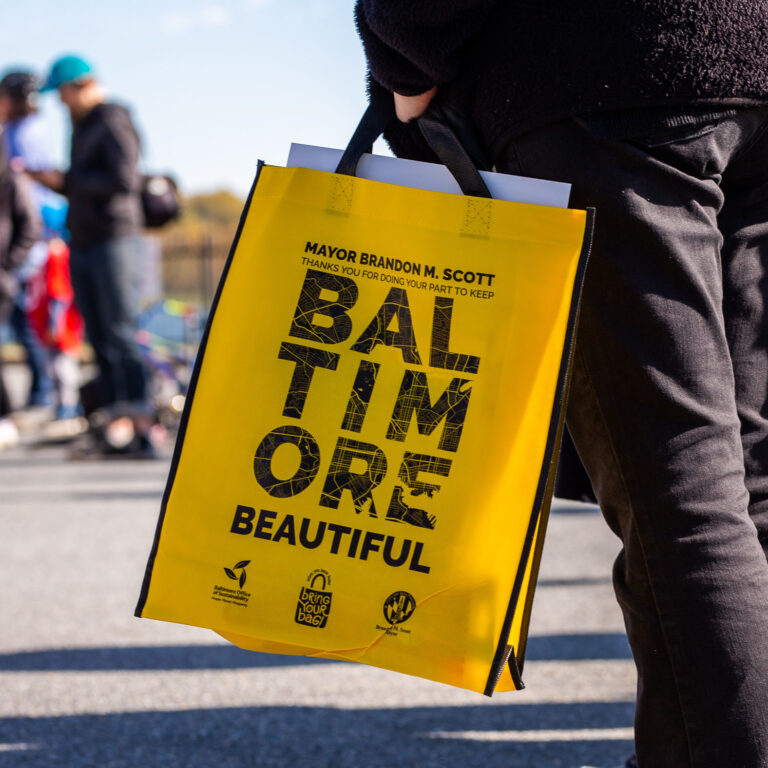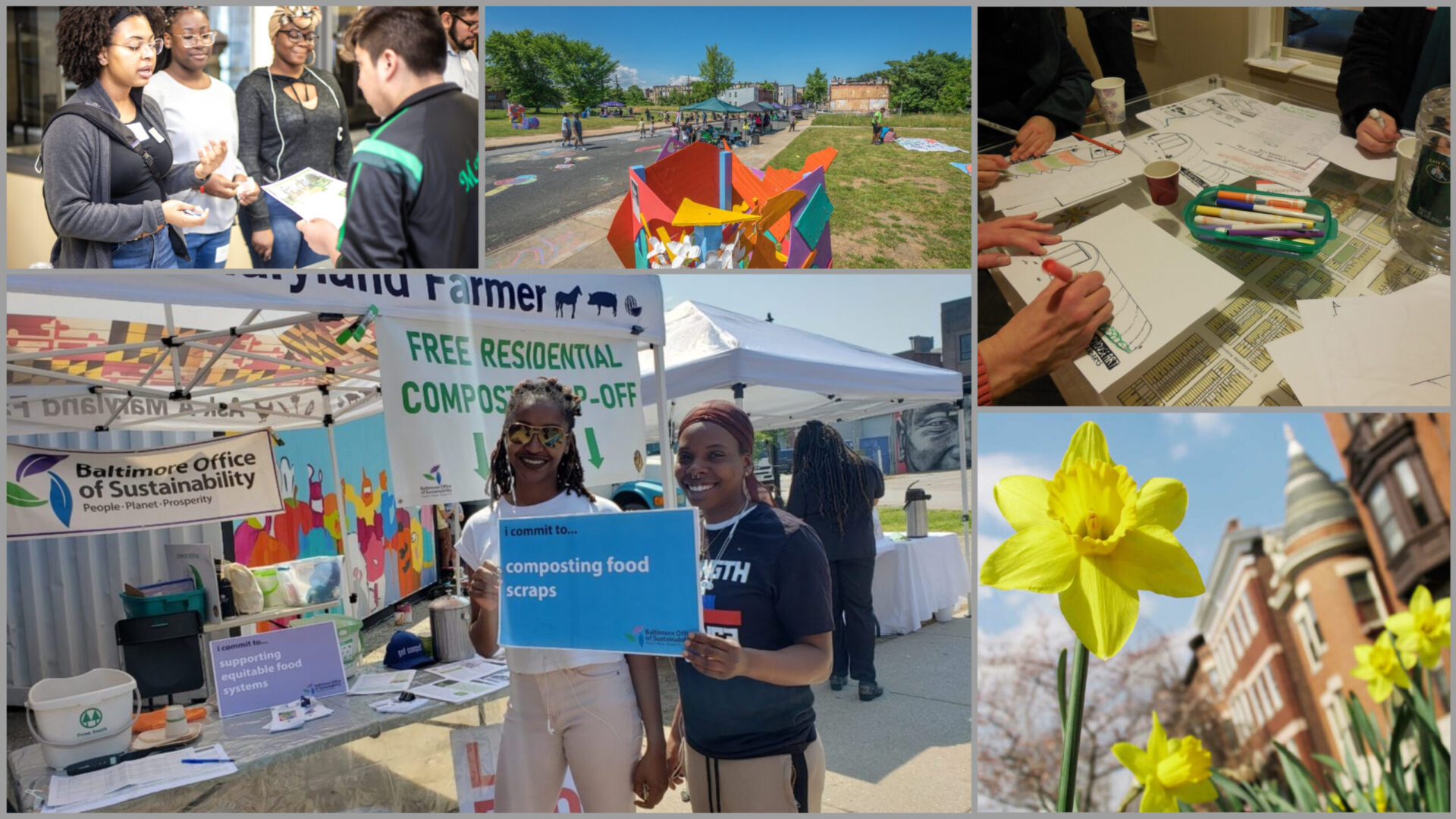
Bag Ban Links for Residents
Background
In January 2020, the Baltimore City Comprehensive Bag Reduction Act was signed into law, which bans single-use plastic bags at the point of sale, pickup, or delivery, and sets a fee for other types of bags. Originally set to take effect in January 2021, Mayor Scott signed an executive order to delay implementation until October 1, 2021, due to the Covid-19 pandemic.
You can find downloadable fact sheets for businesses and learn more about the details of the law here.
Why Bring a Reusable Bag to the store?
- Everyone wants to live in a clean neighborhood! Plastic bags are a large portion of plastic pollution that ends up in our trees, streets, parks, drains, harbor, waterways, and oceans.
- It will save you money! There will be a minimum five cent fee on other types of bags given out at the point of sale, pickup, or delivery, such as paper bags, compostable bags, and thicker reusable plastic bags. The purpose of the fee is to help reduce all types of bag-related waste.
What We’re Doing
In order to reduce waste and avoid fees, we’re encouraging Baltimore residents to remember to Bring Your Bag when going shopping!
In conjunction with the launch of the Comprehensive Bag Reduction Act, we worked with community groups to get reusable bags out to Baltimore residents, by providing bags to sites that distribute food to residents in need and hosting reusable bag giveaways in front of grocery stores. We are grateful to BGE for donating 10,000 bags for this effort! We have also purchased and distributed bags at City sponsored events, and are actively accepting donations for more bags for distribution. If your community is distributing resources to residents in need, and would be a good location for a reusable bag giveaway – or if you have bags to donate! – let us know at sustainability@baltimorecity.gov. You can also use our Bring Your Bag logo if you’re printing your own bags.
Why Ban Plastic Bags?
Banning the use and spread of plastic bags decreases litter, prevents storm drain blockages and reduces our city’s carbon footprint to combat climate change. Fewer plastic bags in circulation is an important step towards a cleaner and greener Baltimore. In the U.S. we throw away enough plastic to fill a football stadium 1.5 times every day on average and that amount is increasing.
Ten U.S. states and hundreds of municipalities like Baltimore have chosen to ban single-use plastic bags because they are an enormous part of our pollution problem, both at home and world-wide. Did you know that:
- Plastic bags are only used for an average of 12 minutes each, but can take up to 500 years to degrade
- The three trash interceptors in the Baltimore harbor, aka the Mr. Trash Wheel family, have collected over 700,000 plastic bags, with an uncountable number still in the harbor
- Lightweight plastic bags are the type of debris most likely to be carried by the wind away from trashcans and landfills, ending up in trees, storm drains, streams, and eventually the ocean
- Plastic bags cannot be accepted in Baltimore City’s recycling system (or at most other recycling centers), and in fact can gum up sorting machines and cause them to break down
- Plastics are made from petroleum and are the fastest growing source of greenhouse gas emissions, which fuel climate change
- Plastic bags and other types of plastic pollution are clogging the ocean and killing marine wildlife, including the fish and other species we rely on to eat
Can plastic bags be recycled?
They can, but only 8% are recycled – 92% are landfilled, incinerated, or littered. Plastic products break down over hundreds of years into micro-plastic particles that persist and accumulate in the environment. Plastic bags are not accepted in curbside recycling because they jam machinery and can cause costly damage.

